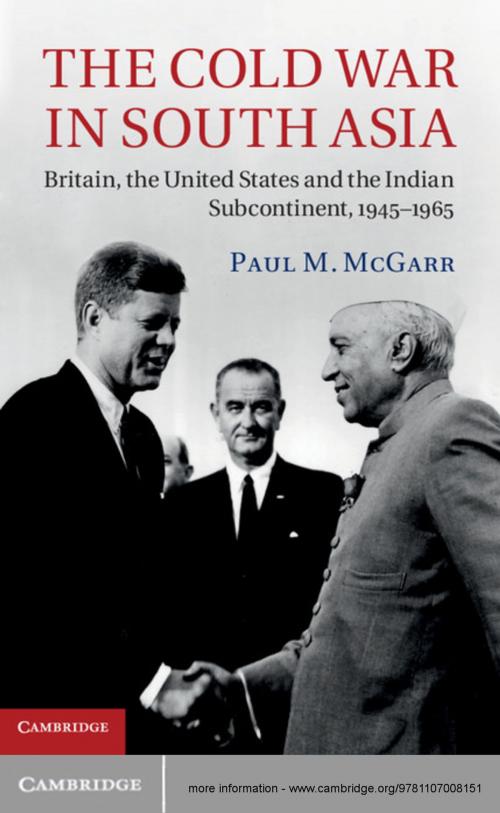The Cold War in South Asia
Britain, the United States and the Indian Subcontinent, 1945–1965
Nonfiction, Social & Cultural Studies, Political Science, Politics, History & Theory, History, Modern, 20th Century| Author: | Paul M. McGarr | ISBN: | 9781107289499 |
| Publisher: | Cambridge University Press | Publication: | August 1, 2013 |
| Imprint: | Cambridge University Press | Language: | English |
| Author: | Paul M. McGarr |
| ISBN: | 9781107289499 |
| Publisher: | Cambridge University Press |
| Publication: | August 1, 2013 |
| Imprint: | Cambridge University Press |
| Language: | English |
The Cold War in South Asia provides the first comprehensive and transnational history of Anglo-American relations with South Asia during a seminal period in the history of the Indian Subcontinent, between independence in the late 1940s, and the height of the Cold War in the late 1960s. Drawing upon significant new evidence from British, American, Indian and Eastern bloc archives, the book re-examines how and why the Cold War in South Asia evolved in the way that it did, at a time when the national leaderships, geopolitical outlooks and regional aspirations of India, Pakistan and their superpower suitors were in a state of considerable flux. The book probes the factors which encouraged the governments of Britain and the United States to work so closely together in South Asia during the two decades after independence, and suggests what benefits, if any, Anglo-American intervention in South Asia's affairs delivered, and to whom.
The Cold War in South Asia provides the first comprehensive and transnational history of Anglo-American relations with South Asia during a seminal period in the history of the Indian Subcontinent, between independence in the late 1940s, and the height of the Cold War in the late 1960s. Drawing upon significant new evidence from British, American, Indian and Eastern bloc archives, the book re-examines how and why the Cold War in South Asia evolved in the way that it did, at a time when the national leaderships, geopolitical outlooks and regional aspirations of India, Pakistan and their superpower suitors were in a state of considerable flux. The book probes the factors which encouraged the governments of Britain and the United States to work so closely together in South Asia during the two decades after independence, and suggests what benefits, if any, Anglo-American intervention in South Asia's affairs delivered, and to whom.















